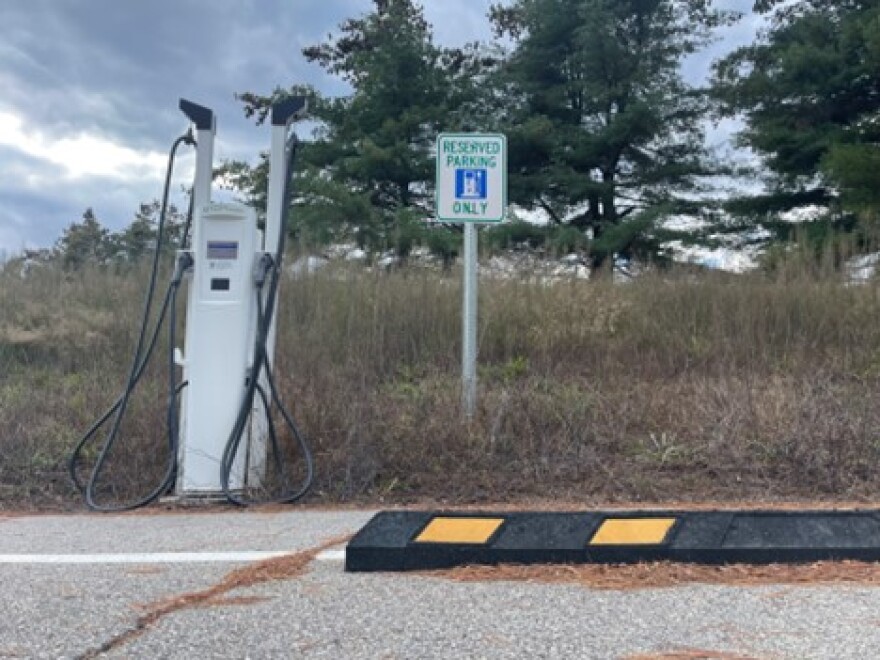Massachusetts state agencies have missed filing reports showing they trimmed emissions coming from state owned vehicles. Regulators didn't enforce the rule, and now it's raising fresh questions about oversight as the state presses ahead on its climate goals. Jordan Wolman reported on this recently for the Commonwealth Beacon explains what this 2017 vehicle emissions rule required state agencies to do and why it was created in the first place?
Jordan Wolman, Commonwealth Beacon: Absolutely! So, this rule came out of a major lawsuit where a judge ruled in 2016 that Massachusetts was not enacting strict and stringent enough regulations to meet the 2050 climate goals to cut pollution by 85%. And so, Charlie Baker, the governor at the time, responded to that litigation and that ruling by requiring his Department of Environmental Protection to issue rules that would get the state on track to meet those climate goals.
And so, the Mass. DEP came out with six regulations at the time, one of which is this rule that we're talking about today that requires state agencies like the Department of Transportation, and the Office of Health and Human Services, to cut the emissions produced by their state owned vehicles and to submit reports to that effect to the DEP, showing compliance that they are, in fact, meeting the emissions limits laid out in that regulation.
Okay, so when did it become clear that no agencies had ever submitted the required reports?
This came through in court records that were filed this month. This is litigation between ExxonMobil and the state of Massachusetts. And so, the state of Massachusetts had sued Exxon in 2019 under then Attorney General Maura Healey, for deceiving investors and sort of covering up its role in climate change.
Exxon is fighting that litigation, of course, and through fighting that litigation, Exxon has filed a public records request to look at where Massachusetts is at in terms of meeting its climate goals and cutting the emissions that it says it wants to.
And through that records request, Mass. DEP essentially admitted in these court records that they actually do not have these records pertaining to this rule, as in, no agency submitted these reports showing that they've cut their emissions for their state owned vehicles.
Wow. Okay. So, what is this lack of reporting and enforcement say about the Massachusetts Department of Environmental Protection's oversight?
You know, it's really not clear what exactly happened here. I talked to a number of people familiar with the department who were surprised that that this is the case.
I think that what we have to go off of is what's in the court record. The Department of Environmental Protection chose not to comment further on my reporting on the court records that I viewed. And so, you know, they didn't put up a fight. Basically, they didn't contest what was in the court record. So, all we have is what's in the court record.
The DEP, in addition to admitting that they don't have these reports from these agencies, also admitted to not taking steps to assure compliance. And so, they had the authority in this rule to require agencies to conduct audits, to conduct inspections of these agencies vehicles and their emissions, and they admitted in the court record that they did not take any such steps.
So how does this compliance gap fit into the broader picture of the state's climate goals, as the state pushes forward towards electrifying its vehicle fleet and meeting its 2030 and 2050 emissions targets?
You know, it's a really uncomfortable reality for a deep blue state that's up against a hostile federal government right now, looking to scrape together any emissions gains, any emissions reductions that it can right now.
This has nothing to do with the federal government. This is a state regulation, and it just has not been followed. So, I think it sort of remains to be seen how DEP will seek to correct this.
I will just add that these reports are due March 1st of each year. The first year that they were due was 2019. They've continued to be due on March 1st. So, you know, we can we can look to March 1st again to see will anything change this time?
And how finally have environmental groups like the Conservation Law Foundation reacted to this revelation?
Yes. So, the Conservation Law Foundation, among other groups, was instrumental in gaining that court victory in 2016, in suing the state, successfully requiring that additional regulation be implemented to meet the 2050 climate goals. And so here we have a regulation born out of that litigation that hasn't been followed. You can just imagine how a group like that is feeling the frustration that they're feeling. And now spanning administrations as well.
You've already marked your calendar for March 1st, 2026, I bet.
I sure have.






![Attorney General Andrea Campbell [right] with members of her office listening to organizer Katie Talbot [left] and activists speak about significant housing violations at Springfield Garden.](https://npr.brightspotcdn.com/dims4/default/e51cb78/2147483647/strip/true/crop/4032x2246+0+389/resize/280x156!/quality/90/?url=http%3A%2F%2Fnpr-brightspot.s3.amazonaws.com%2F21%2Fd9%2Fa31fb1144911a88742d2d8c7c079%2Fimg-9669.jpg)